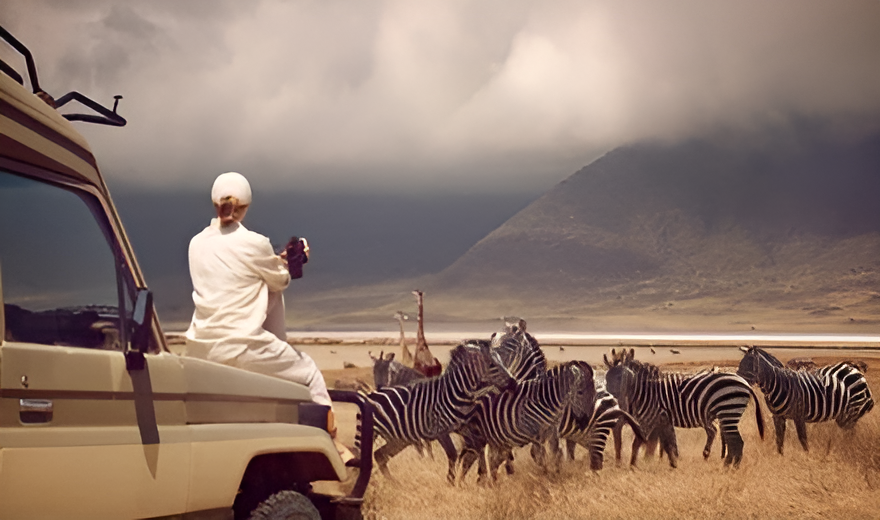Introduction
If you have never been to an African safari, then you have not had one of the most exciting traveling experiences of your life and it is one that you should not wish to miss. However, to get best experience of the travel, it is important to prepare and one of the most important aspects of preparing is packing. One of the most common questions of first time travelers is what to take to safari, and the answer is that a properly planned African safari packing list could mean the difference between a comfortable trip and a stressful one. The following is a packing guide that will enable you to pack wisely, be comfortable, and to make it enjoyable during your entire safari.
The Safari Wardrobe Essentials
During the planning process of your safari wardrobe, focus on comfort, dress, and protection against sun exposure. Be ready to wear layers, as the African climate is always changing and you may wake up to a chilly morning, have hot afternoon and even experience rainy showers. Temple shirts all comes in neutral colors such as khaki, beige, olive green, and light brown, as these neutral colors naturally integrate in our surroundings and they do not they do not easily attract insects or drive away animals. Brighter colors need to be in the house. In your Africa safari packing list, include:
- 2-3 short sleeved shirts – Lightweight breathable in hot weather.
- 2- 3 Long shirts- Protects against sunburn and insect bites.
- 2 lightweight trousers pair- These are the best ones to wear when walking and sitting on game drives.
- 2 pairs of shorts – Good to slacken at your lodge or a warmer part.
- 1 warm top (jacket or fleece) – Necessary during cold mornings and evenings.
- 1 rain jacket or poncho – You can use this as you are caught into rainstorms or bad weather.
Ventilated clothes of moisture-wicking materials or of cotton fabric will keep you cool, covered with long sleeves and pants will help you not get sun burned, and not get stung by insects.
Shoes: The Most Important thing is Comfort
Your trip might involve more or less walking according to what you are going to be doing (on the bush trails, around the campsites) so it is crucial to have the type of shoes to wear that will not only ensure that you are safe but are comfortable wearing them too. Training shoes should also be good grippy supporting ones that will enable you to walk easily across the various terrains without slipping or blistering. The following is what you should move around in your footwear:
- Hiking boots or trail shoes – Wearing closed-toe shoes that have tough soles will give you the grip that you need in uneven surfaces as well as possible bush walks.
- Lightweight sandals- Ideal to wear around the lodge or that after work.
- Flip-flops- Easy to use in the shower or in the pool.
Take warm, quality socks to wear with boots. Some travelers even buy insect-repellent socks as they provide extra protection, in an area where there are mosquitoes.
Insect and Sun Protection
The sun is strong in Africa and insects such as the mosquitoes and tsetse flies may be troublesome. Ensure that your African safari packing checklist is made up of:
- Wide hat- It will provide shade and protect your face, neck, and ears with the sun.
- Sunglasses UV protection- This will lessen the glare and give your inner eye protection at your game drive.
- Sunscreen SPF above 50 – Pick a broad-spectrum sunscreen that protects against UVA and UVB rays.
- DEET or Picaridin insect repellent – helps in keeping mosquitoes and other bite insects away.
- Anti-itch or after-bite cream – In case you are bitten, this will also come in handy.
It is also important that you put on sunscreen in the morning and refresh several times a day, even during long road trips. Add long clothes and use insect repellent and you will be fine.
Safari Gear and Essentials
Other than the wearing and protection gears, there are a couple of ideal gear items that can help make your safari easier and enjoyable. It does not matter whether you are a photographer, a nature lover or just a passenger, these necessities will enrich your general experience.
Incorporate the following on your African safari packing list:
- Binoculars – See at a distance clearly and accurately.
- Camera, spare batteries, and memory cards- Record the once in a lifetime moments without the fear of occupying storage space and lacking power.
- Flashlight or headlamp – Lighting at night is minimal at some of the camps.
- Power bank: when you are in a distant place, your phone can run out of power and you will need power bank.
- Reusable water bottle – Drinking water in the heat on a reusable bottled helps to take care of yourself and the environment.
- Daypack or backpack (small) – Useful to stash the material on the game drives or any hikes.
Pack electronics like music players, cell phone etc. in zip-lock bags so they are not affected by dust and sort out clothing in dry sacks. The lightweight equipment offers mobility and offers all that is necessary to have an epic adventure.
Personal and Health Items
Your safety is as important as your safari program. To help you achieve this, you can carry some basic health supplies so that you can address any low-level problems promptly and have the peace of mind that you cannot be caught short during the journey. Take the following:
- Prescription medications – Don not forget to bring just enough to keep you until the end of your trip, and a few days more as backup.
- Simple first aid kit – carry band-aids, antiseptic wipes, pain pills, stomach medicine.
- Hand sanitizer and wipes – need it to clean the hands and surfaces in the streets.
- Toiletries, carry mini versions of your staples and make them environmentally friendly.
- Malaria tablets- Visit your GP before travel particularly in case you travel to a malaria infested area.
Make sure you have travel insurance papers, immunization receipts, and an extra copy of a passport printed. Such documents are important and can help you avoid a lot of stress during a case of emergency. The right packing will prepare you to visit an African safari and enjoy all of its scenes, wildlife adventures.



